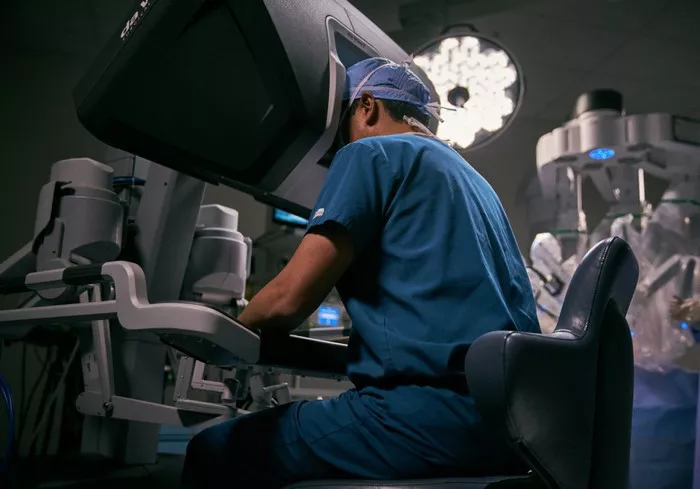Colorectal cancer remains one of the world’s most prevalent and deadly cancers, with many tumors located in the lower colon. Surgery is often the cornerstone of treatment for these patients, and new research suggests that robotic-assisted surgery could represent a major leap forward.
Once considered expensive and niche, robotic surgical systems are now demonstrating clear benefits over traditional laparoscopic techniques—not only matching them but surpassing them in critical cancer control and quality of life outcomes, according to a recent study published in JAMA.
Precision in Challenging Anatomy
Rectal cancer surgery is among the most complex operations due to the confined pelvic anatomy, particularly in men, individuals with high body mass index, or those with narrow pelvic structures. The JAMA study authors emphasize that such complexity demands more than skill; it requires technological advantages.
Robotic systems provide enhanced 3D visualization, improved instrument articulation, and superior ergonomic control. These features allow surgeons to navigate tight spaces with greater precision and stability, reducing the risk of damaging critical nerves.
Improved Cancer Control and Quality of Life
In a randomized clinical trial involving over 1,200 patients, robotic surgery showed a significantly lower three-year regional recurrence rate than laparoscopic surgery—1.6% compared to 4.5%. This marks a meaningful improvement in long-term cancer control.
Beyond survival, patients who underwent robotic surgery experienced better preservation of urinary, sexual, and bowel functions at three and six months post-operation. At one year, urinary and male sexual functions remained superior compared to those who had laparoscopic surgery.
These functional outcomes are crucial, reflecting the patient’s autonomy and quality of life long after treatment ends.
Looking Ahead
Laparoscopy has been the gold standard for minimally invasive colorectal surgery, but its limitations become apparent in complex pelvic cases. Traditional tools offer less flexibility and visibility, increasing risks of nerve damage that can lead to lifelong complications such as bladder control loss, sexual dysfunction, and bowel issues.
Robotic surgery addresses these challenges with unmatched precision, potentially redefining the future standard of care. While the technology is costly and requires further training and data to confirm long-term benefits, the study’s findings suggest robotic systems may soon shift from innovative options to clinical expectations.
Considering the high costs of cancer recurrence and complications, investing in advanced robotic technology could mean not just surviving colorectal cancer but preserving a better quality of life.
Related topics:

